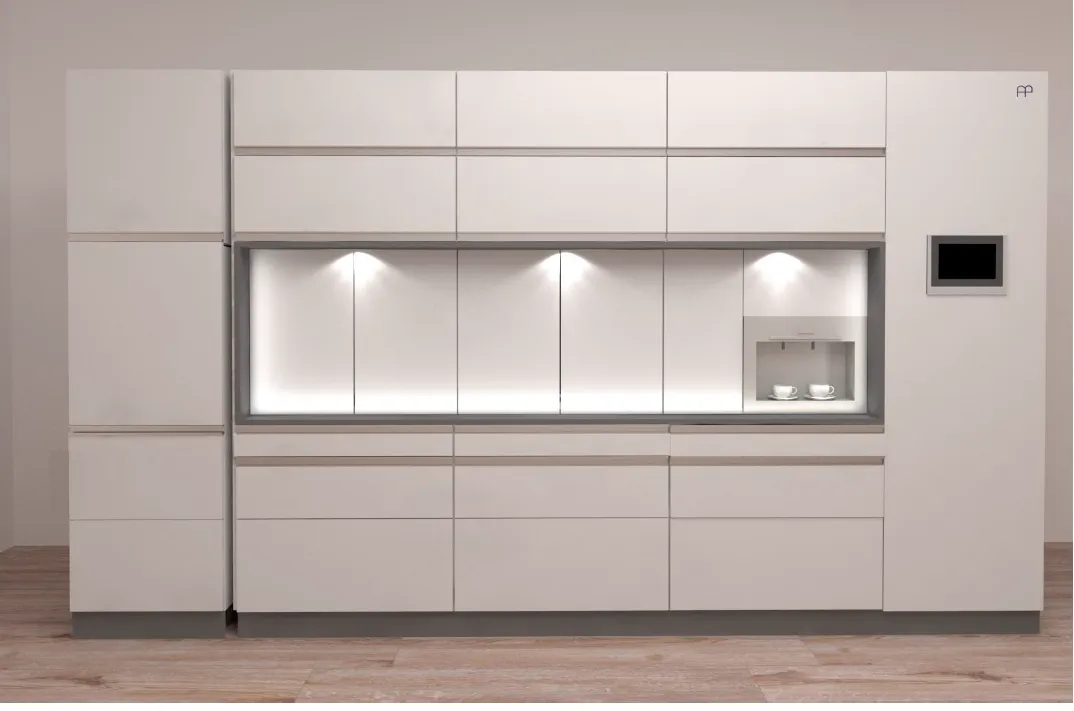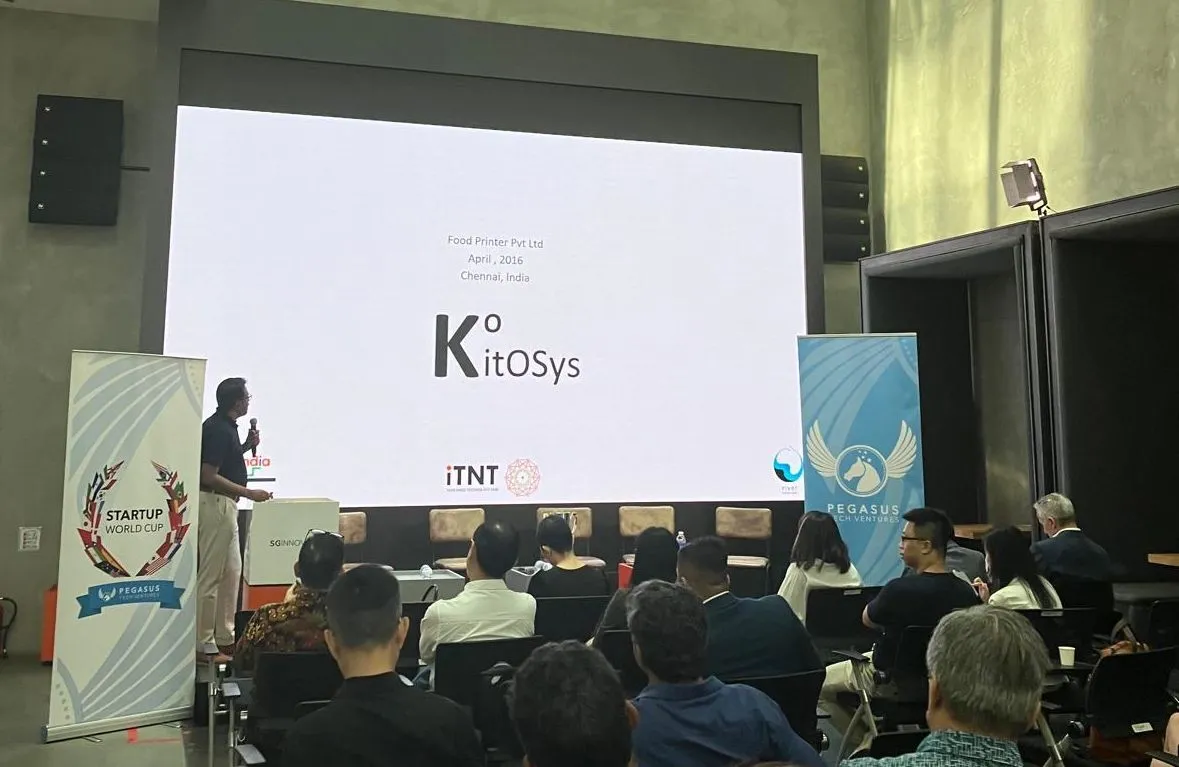Chennai Startup Unveils World’s First Multi-Cuisine Automated Cooking Machine
Founded by Satheshkumar S, Chennai-based startup KitOSys has introduced the iKichn (Intelligent Kitchen), a groundbreaking multi-cuisine automation machine capable of preparing meals for 50 to 500 people.
Satheshkumar S
Founder/CEO, KitOS
Satheshkumar S, having settled in New Zealand with his family, was earning a substantial salary of around Rs. 1.5 crore. However, due to a recession and health issues affecting both him and his wife, he decided to return to India.
“We had been considering returning to India for over two years, but our deteriorating health made the decision easier. Access to healthcare in India is crucial for us,” Satheshkumar, 31, shared in an exclusive interview with Startup Pedia.
With a decade of experience in IT consulting and a long-standing entrepreneurial dream, Satheshkumar, along with his wife Yanika, a finance consultant, launched KitOSys in June 2024.
Ayarise Tech Matrix
Revolutionizing Commercial Kitchens
KitOSys’s iKichn is redefining the commercial food industry. Satheshkumar highlighted how iKichn addresses the challenge of quality manpower in small and medium-sized food businesses. Market studies reveal that 70% of businesses fail within a year and 20% within five years due to manpower issues. Automation can help scale operations and improve business sustainability.
“This iKichn offers significant benefits, including profitability and reduced reliance on manpower turnover, at a relatively lower investment. It ensures consistent taste and availability, which extends business sustainability,” Satheshkumar explained.
Chef Deepak Shirur, formerly with Taj and Oberoi Hotels and CEO of Touchpoint Gourmet Consultants, praised iKichn, calling it “the new wave in cooking for the food industry, visionary and futuristic.”

Genesis of iKichn
The idea for iKichn began in 2005, driven by Satheshkumar’s desire to ease his wife’s cooking workload and provide flexibility in dietary preferences. The concept gained momentum in 2015 when Satheshkumar, motivated by his personal struggles with IBD, began developing a fully automated kitchen.
In 2016, he founded Food Printer, which was later rebranded as KitOSys. After extensive development, the iKichn prototype, designed initially for residential use, excelled in cooking South Indian delicacies and beverages. The COVID-19 pandemic, however, led KitOSys to pivot towards a commercial model.
iKichn Prototype
The commercial version of iKichn is now ready, designed to handle cooking for 50 to 500 people. This stainless steel kitchen unit requires a minimum space of 2×2 meters and can be expanded up to 7×2 meters if needed.
KitOSys, recognized as a NITI Aayog Atmanirbhar Innovation Challenge 1.0 national awardee and among the top 15 startups in South Asia by Stanford SEED, has invested Rs. 3-4 crores in the development of iKichn.
Satheshkumar, with over 30 years in automation engineering, worked on iKichn while maintaining a full-time job. He holds an executive management diploma from Emeritus, Singapore, and qualifications from MIT Sloan and Columbia Business Schools.

The Plan Ahead
KitOSys aims to sell over 100 iKichn units in the next fiscal year (FY-26) and achieve revenue of Rs. 50-100 crores. The company, initially comprising eight full-time employees, now includes 14 part-time staff, operating from a 1,500-square-foot headquarters.
FAQ
What is iKichn by KitOSys?
iKichn is an intelligent kitchen automation system developed by KitOSys, designed to prepare various dishes automatically with just ingredient input and commands.
Who is the founder of KitOSys?
KitOSys was founded by Satheshkumar Subramanian.
How does iKichn work?
iKichn automates cooking processes, allowing users to prepare a variety of dishes simultaneously by inputting ingredients and commands.
How much investment has been made in iKichn?
Satheshkumar invested Rs. 3-4 crores of his personal savings into iKichn.
What are the revenue goals for iKichn?
KitOSys aims to sell 100 iKichn units and achieve Rs. 50-100 crores in revenue for the upcoming fiscal year (FY-26).

